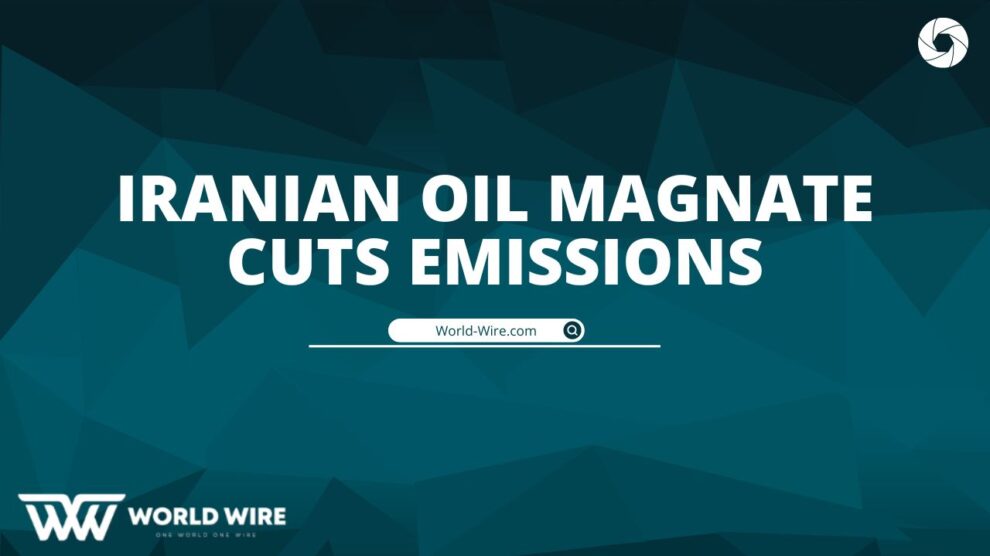Iran’s biggest environmental problem right now is air pollution, especially in Tehran, but also in Tabriz and other cities around the country. A lot of Tehran’s pollution comes from car exhausts, which makes up 1.5 million tons of pollutants each year. There are estimates that 4,000 to 5,000 Tehran residents die from air pollution each year. Iranians wear face masks to protect themselves.
JAICA and the Iranian Department of Environment are co-operating to get Tehran’s air cleaner. Tehran has invested $2.2 billion in a 15-year project that aims to cut Tehran’s air pollution by 16% by 2014. Recognizing that the answer to the country’s air pollution problems doesn’t come from simple gestures. World Bank, Japanese experts, and Iranian environmentalists came up with the plan, which includes rehabilitating public transport and phasing out old cars.
Almost 2 million cars in Tehran are over 20 years old, are really fuel inefficient, and don’t have catalytic converters. They can’t run on lead-free fuel, too. Khatami said in January 2002, “from now on, all Iranian-made cars will be able to use favourable fuel consumption standards”. He also said Iran would move towards lead-free gasoline soon.
A massive cleanup campaign is being run by Ethosworld.com Ltd., which has landed an initial contract to supply Iran with 1.2 million Ethos MAXPower fuel economizers. Westerners love these units because they save a lot of fuel, but Iran wants them because they reduce emissions. MAXPower reduces vehicle emissions by 50%, not just drastically reducing fuel consumption.
As a result of their work on magnetic fields on solid, liquid and gas substances, Felix Bloch and Edward Mills Purcell were awarded a Nobel prize in 1952. It is not new to use magnetic fields to improve combustion in combustion engines. Magnetic fields were reported in the 1940s for improving combustion performance. Air Force Mustang aircraft were equipped with a device that allowed poor quality fuel to give them longer ranges and improved performance. As a result, it proved very successful and was later used by the Royal Air Force on Spitfires and Hurricanes. Since electromagnetism had to be used to create the required magnetic field strength, the devices used back then were very heavy and cumbersome. In recent years, however, the advent of new neodymium super magnets has made it possible to generate magnetic fields even more powerful than a matchbox, thanks to new neodymium super magnets.
As a result of the application of a very powerful magnetic field directly to a fuel supply line, the fuel is conditioned in such a way that it forms a better bond with the oxygen in the air when it combusts. As a result of this enhanced burn, more power is produced from the same amount of fuel while emitting far fewer pollutants, since the main part of exhaust pollution is the unburned fuel particulates. Any garage or vehicle MOT testing station can easily and quickly demonstrate this using standard emissions testing equipment.
A series of extensive tests on magnetic fuel conditioning technology was conducted by Warren Springs Laboratories in 1992, a vehicle testing department of the UK Department of Transport. The results were very surprising. In their 16-page report, they found that power increased, fuel economy improved, and harmful emissions decreased.
A summary of their findings was provided in their conclusion; “Both series of tests showed consistent reductions in carbon dioxide emissions, fuel consumption, and nitrogen oxide emissions, but they reversed the trend once the test unit was removed.” Additionally, the power increase observed in the first series remained marginally higher during the second series of tests.”.
According to Peter Aldred, CEO of Ethos World, “After two years of extensive testing in Tehran, where our Ethos MAXPower fuel units demonstrated exceptional emission reduction capabilities, we are thrilled to be awarded this major contract for Iran’s fuel supply.
Following very positive government trials over the past two years, Iranians have committed to fitting our units into all new vehicles after two years working with us. In our opinion, this is a significant step forward for them in their air pollution reduction project, which will greatly assist them in reducing the pollution problems of their country.
Obviously, this is a major contract for our company and we believe our fuel economisers will enable us to expand to other countries with similar pollution problems on account of the huge credibility this contract gives us.
We continue to see MAXPower units becoming increasingly popular in Europe as fuel prices continue to rise. If you save a 10% of fuel, you’ll save 40p each time you fill up for the rest of your life, even at record highs of £4.00+ per gallon! With fuel prices as high as these, our MAXPower unit offers an incredible quick payback time for fleet owners and high mileage drivers.
As a result of the UK Government’s original test and proof of effectiveness in 1992, the Iranian Government proved the technology to be effective again in 2005. In addition to saving you money, Ethos MAXPower fuel economisers make a significant contribution to preserving our environment as well. It is not our planet that we own, it is our responsibility to care for it for future generations, and, if everyone could do their part by installing a MAXPower unit now, we would all benefit in the long run.”







Add Comment